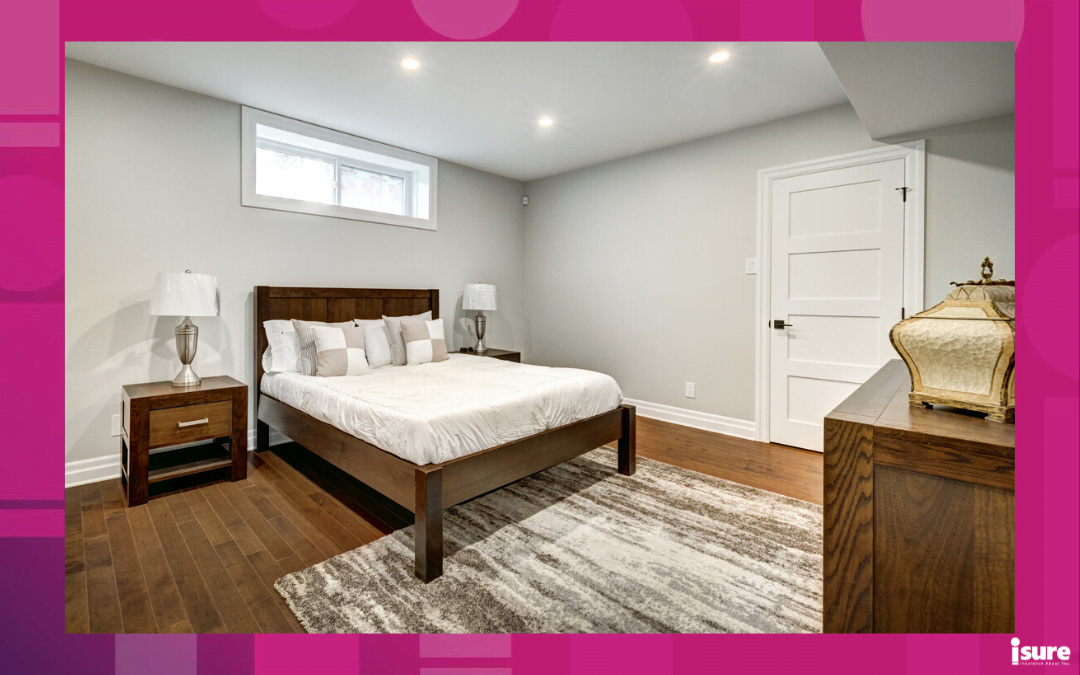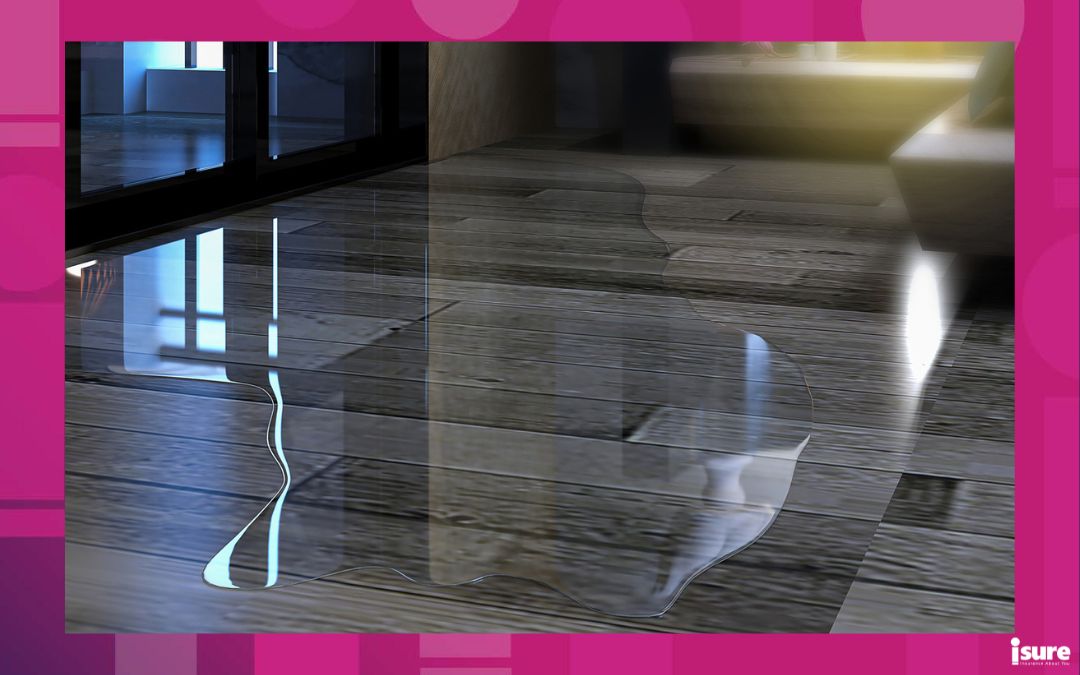It’s not uncommon for many first-time renters to originally shy away from the idea of renting a basement apartment. Many imagine a dark and damp unit with bad living conditions. However, this is very far from the truth! It may not sound too appealing, but in Canada, basements are usually quite nice and no different than any other part of the house. Also, it’s common for many people to start out in basement apartments. This is especially true if you want to live close to the downtown area of a city because basement apartments are usually less expensive than other types of rental units. Let’s take a look at the pros and cons of basement rentals, and if it’s the right fit for you.
What is a basement rental?
In Ontario, a legal basement apartment is a secondary unit that meets Ontario Building Code requirements. An authentic basement apartment is located at least 50% below ground level in an apartment building or multifamily home. These types of units come with a unique set of benefits and downfalls—some of which you might not fully discover until you actually move in and go through your day-to-day routine. Below is a list of both the pros and cons attached to basement apartment living:
Pros of basement rentals
1. Basement units are more affordable
The best deals in some of the more centrally-located neighbourhoods are often basement apartments. According to real estate experts, basement units are 20% less expensive than other units in the same building. If you are new to Ontario or are a first-time renter, it’s likely you are on a tight budget. Renting accommodations can typically be your biggest expense, taking up as much as 30-60% of your monthly budget. You can significantly lower your monthly expenses by renting a basement apartment since this type of accommodation is usually cheaper than other rental options in Ontario. For instance, the average rent for a two-bedroom basement in Toronto is around $1,920 CAD per month. This is roughly 30% less than the average rent for a two-bedroom apartment or condo in the city (figures reflect rental prices as of March 2022).
2. Basement rentals are darker
While this may fall squarely in the column of cons for some, if you are one that is on reverse schedules—like medical workers and first responders—you might benefit from renting an apartment that’s not too bright during the day so you can get some quality rest.
3. They’re often more spacious
While “basement” can imply ‘cramped’, many of these units have a reasonable amount of space, coming in at 600–1,000 square feet. “Because basement apartments are often under single-family homes, you’ll likely get more space than you would in a multi-family unit,” says Jeremy Wacksman, President at Zillow.
4. Fewer rental application requirements
Most rental applications require you to have an established Canadian credit history or job letter. However, since it takes newcomers time to get these, you may not qualify right away for many of the rental options you come across. Individual homeowners are likely to be more flexible with rental application requirements compared to corporate landlords of apartment buildings.
5. Privacy and access
A basement apartment is legally required to have a separate entrance. You’ll typically be the only one using your entrance in a single-family property. Basement apartments also provide easy in-and-out access, usually one small flight of stairs or no stairs if it’s a garden unit.
To learn more about what constitutes a legal basement rental and how to tell if it is up to code, please click here.
Cons of basement rentals
Keep in mind, though, that there can be a few potential drawbacks to living in a basement rental that you should be aware of:
1. It can feel claustrophobic
The biggest structural con is that the ceiling can be a lot lower than in apartments that are above ground. When combined with minimal lighting, it’s not an ideal living situation for some who prefer their spaces to be open and bright. The darker space can lead to heightened anxieties, especially in people prone to claustrophobia.
2. Vitamin D deficient
If you are prone to vitamin D deficiencies or have mental health conditions worsened by long periods of darkness, perhaps this type of unit is not for you. Since basements often lack access to direct sunlight, renters can experience vitamin D deficiencies. Not getting enough sunlight can also impact or exacerbate mental health conditions, such as depression or anxiety.
3. Basement rentals can flood
While it’s always a good idea to get renter’s insurance, you should definitely opt for it in a basement unit. Without proper drainage, basement units can be prone to flooding. If someone above you has a leaky faucet or leaves their bathtub faucet running, the water can flood into your unit. If you live in a region with a lot of heavy rain, it will be a unit with a higher flood risk. Look carefully for signs of previous flooding before you move in, and store your belongings off the floor on shelves or in plastic totes in case there’s a flood.
4. Pests can be problematic
Basement apartments are more likely to harbor insects, spiders, centipedes, and other household pests that gain easy access to ground-level locations. Leaving windows close to ground level opened for an extended period of time might be a bad idea. Mice, rats, and other animals might come in in search of food or warmth in the colder months. Plus, garbage cans might be placed close to your window, which means some not-so-great-smells can waft in.
If you have allergies or have odd working hours, it’s important to find out a bit about the people you are sharing the home with. Pets, young children, and the number of people living above you are important considerations when deciding on a basement apartment.
5. Basement rentals can get noisy
Since noise insulation between the first and basement floors may be lacking, noise from your neighbors may be problematic. These units may be noisier than other units, especially if they face the street or the building entrance. Being near a shared laundry room or utilities, like a water heater, may increase noise or foot traffic outside your door.
6. Potential for mould problems
Since basement apartments tend to be partially or mostly underground, moisture can seep in from any cracks in the foundation. As a result, mould can grow behind or on walls, ceilings and floors. While viewing the unit, inquire about whether the unit has been tested for mould if there is a musty smell. Basements are prone to humidity because they have less sun exposure and air circulation. which can be a health hazard if you are someone who has asthma or allergies. You will need to have very good insulation, or a decent humidifier, to avoid humidity complications. In addition, the presence of radon gas can increase the chances of lung cancer. An airtight basement apartment that lacks sufficient ventilation can increase the risk of radon exposure.
7. You may not have outdoor space
Usually, a basement rental does not come with a patio, and of course, there’s no balcony. You may find some landlords allow for shared outdoor space with the other tenants, but that is a consideration if you have small children or pets. On another note, some landlords may not allow pets of any kind, a deal-breaker for many with fur babies.
8. Cool temperatures
You may experience more severe temperature shifts during warm and cool seasons. While a basement apartment can be a cool retreat in the summer, it may be harder to keep warm in the cold, winter months.
9. Security and safety
Units must have adequate emergency exits and proper accessibility during a fire or another emergency. Without it, you may be at higher risk of injury or death due to not being able to get out in time if evacuation is necessary. Make sure your basement apartment is accessible and meets local fire codes and city regulations. Basement rentals are easier to access than units on a higher level in the building. Make sure that when viewing a basement unit that the windows and entrances lock securely. If necessary, ask for a protective window grate or separate locks to be installed before signing any papers.
The bottom line on basement rentals is that they can provide you with a more affordable housing option. In an expensive rental market, such apartments have become increasingly popular. When you’ve found a unit that is right for you, remember to contact your isure representative to discuss the best insurance coverage for your unique protection needs.




